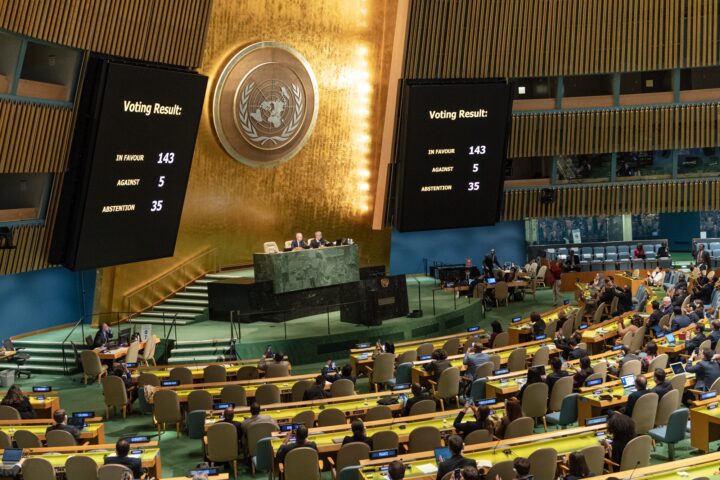UN General Assembly adopting a resolution
The member states of the United Nations General Assembly (UNGA) have voted to develop a convention on international tax cooperation.
For years, the Organisation for Economic Cooperation and Development (OECD) — a group of 38 mostly high-income countries, has dominated international tax policy.
But criticism over the power wielded by wealthy countries in its closed-door decision-making has grown in recent years.
Voting for the resolution tabled by the African group under the title “Promotion of inclusive and effective international tax cooperation at the United Nations”, was carried out on Wednesday at the UN Headquarters in New York.
Advertisement
The resolution was passed with 125 votes in favor of the tax convention, and 48 votes against.
However, nine countries abstained from voting.
According to a statement by the African Union Commission, the resolution represents a significant advancement, showcasing the African groups’s collective dedication to global tax reform and paving the way for a more equitable and effective global tax system.
Advertisement
“It marks a historic moment for Africa and the world. It will facilitate the access of much needed financial resources, crucial for responding to the current debt crises and facilitate the pursuit of achieving sustainable development,” the statement reads.
“It is also in line with African aspirations as outlined in the AU Agenda 2063, reinforcing the commitment by Member States, to strengthening tax systems and fostering tax equity.”
Addressing member states, Tijjani Muhammad-Bande, Nigeria’s permanent representative on behalf of the African group, described the resolution as a “beacon of hope”.
He said by adopting a unified, UN-led framework convention for international tax cooperation, doors can be open to significant economic advantages.
Advertisement
“For emerging economies, this means greater ability to mobilize domestic resources, directly fuelling development projects and social welfare programmes,” he said.
“For more developed nations, it promises a level playing field, reducing instances of tax evasion and avoidance that currently undermine economic fairness.
“Moreover, recent data from the International Monetary Fund suggests that improving international tax cooperation could significantly reduce illicit financial flows, a scourge that deprives economies, especially those in the developing world, of critical funding. For all countries, illicit flows can fuel crime, destabilizing societies.”
Advertisement
Add a comment






